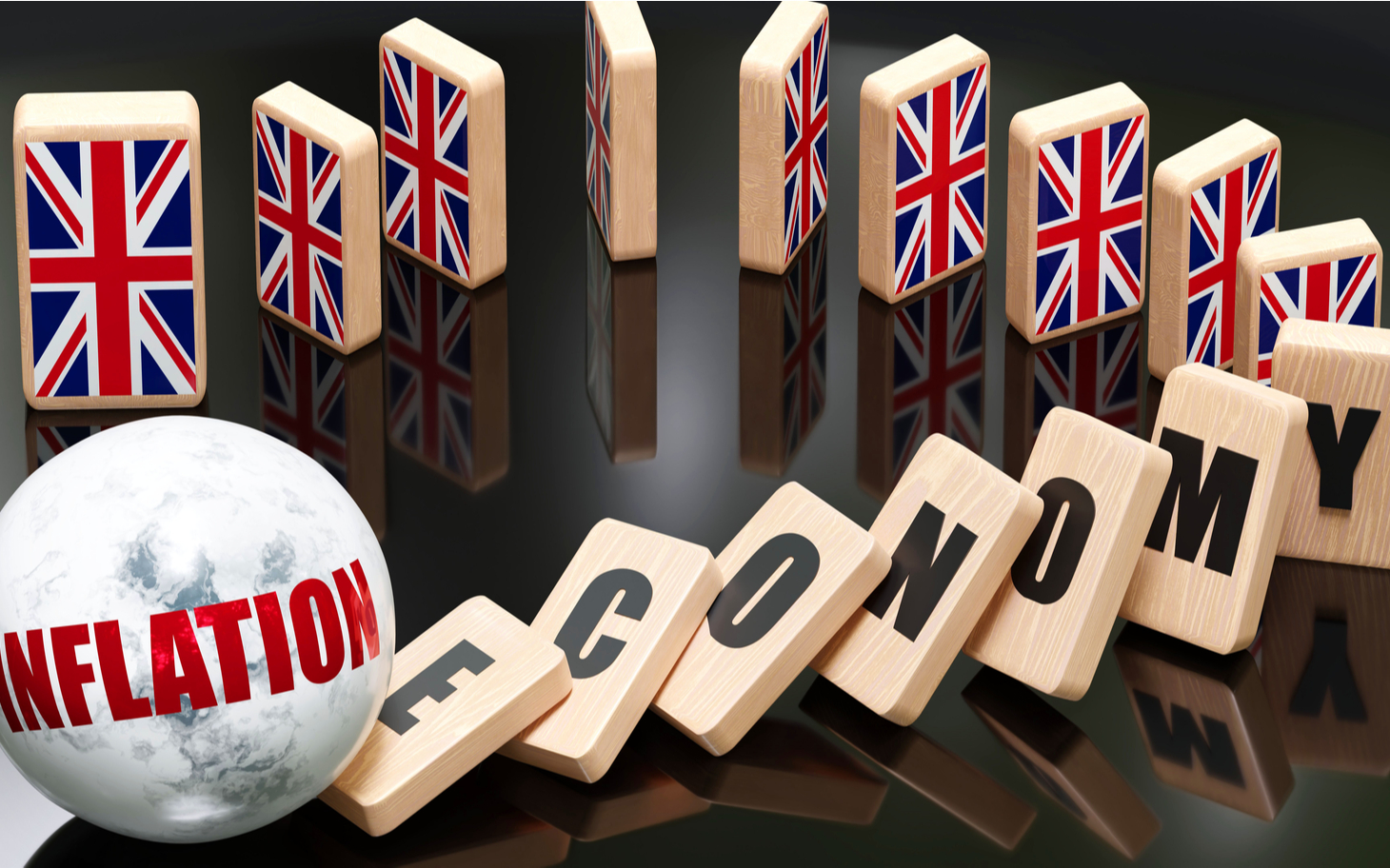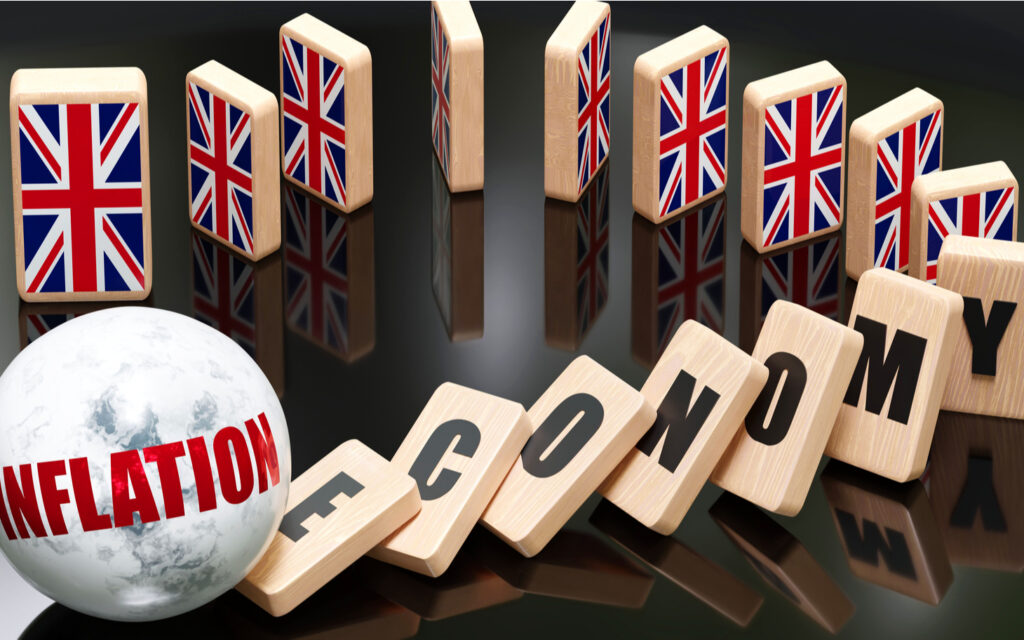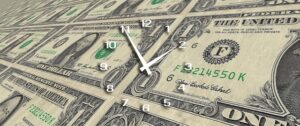
I’m from the government and I’m here to stop inflation: Don't be too concerned about the new episode of inflation. The authorities are on the case! And it will soon be proven to be a transient moderate.
Now and again, I hear someone declare that the economy is improving. That we now have a greater understanding of things. That we take history's lessons to heart. That we won't make the same mistakes again in the future. As if that wasn't enough, I'm also laughing.
The concept that people didn't understand basic economics in the past strikes me as arrogant. And that they made poor political decisions due to economic inexperience.
Do you think policymakers in the 1970s didn't comprehend inflation? The 1920s were still fresh in our minds! In addition, dumb economic theories regarding stimulation were less developed at the time, making them less appealing.
No, the reason for “really foolish” economic policies can be found elsewhere. But where exactly?
Here's a hint from the former top economist of the European Central Bank in 2016. It's about how the euro was developed even though economists knew it was a horrible idea (emphasis added):
The vast majority of German economists supported the so-called economists' perspective, which held that monetary union should be the final stage in a long European integration process. Despite fears that the euro would collapse, 11 disparate countries embarked on a highly ambitious effort toward the European Economic and Monetary Union (EMU) in 1999. As an economist, I agreed with the Germans. But, as a central banker (I joined Germany's Deutsche Bundesbank in October 1990), I had to accept the political decision to establish monetary union and relinquish national currencies. The decision was made unanimously by 11 governments and ratified by 11 legislatures, in some cases with referendums. Whether independent of the government or not, the central banks' role is to make the best of political decisions.
See what I mean? Whatever Bill Clinton may have said about it, political foolishness trumps economic common sense.
As a result, whatever academics believe, monetary policy can become a political phenomenon. (By the way, it was the focus of this month's issue of Gold Stock Fortunes.)
Indeed, inflation is a political phenomenon at this stage rather than a monetary one. (I doubt I'd have the courage to tell debater extraordinaire Milton Friedman this in person if he were present.)
After all, if it weren't for political realities, central banks could manage inflation with stricter monetary policy. They know how to do it, why they should do it, and why they aren't doing it because there are more important things at stake – politics.
Even halfway sensible monetary policy today would almost certainly bring inflation back down, not to mention precipitate a massive debt catastrophe.
But we live in a rescue economy, and public debt is already at dangerously high levels. If something goes wrong, a government will perish along with it. And only central banks can keep the farce going by producing the money the government requires and maintaining interest rates low enough to allow the government to refinance regularly.
We broke out of this cycle in the 1970s when politics, not monetary policy, changed. The central banks were allowed to act under political cover rather than defiance of political pressure. After all, Paul Volcker was appointed by someone. Not to mention the possibility of being reappointed by someone else. But that's another storey.
Today's policymakers are probably aware of all of this. But for the time being, they're playing dumb. As a result, the same old political games are being played.
These games entail blaming foreigners and selfish business people for inflation while arguing for price controls and other illogical measures to reduce inflation.
Just as we repeated past to generate inflation, we will repeat history in weird ways to bring it back down – or, more accurately, to try to bring it back down.
This comment from the Intercept is particularly amusing:
IN RIYADH, THE MAIN CAUSE OF INFLATION IS A MURDEROUS MANIAC.
According to the president [Joe Biden], Saudi Arabia is withholding oil output because Biden will not meet with Mohammed bin Salman following the murder of Jamal Khashoggi.
PRINCE OF SAUDI ARABIA By pushing up oil prices and fueling global inflation, Mohammed bin Salman is exacting vengeance on Democrats in general, and President Joe Biden in particular, for the party's increasingly hostile attitude toward the monarchy.
Does this sound familiar?
Let's ignore how ridiculous it is. I mean, a country that is closing down oil infrastructure due to environmental concerns is asking other countries to create more so that the former oil producer can burn it up!?
Why are you blaming them for higher prices? Over a political assassination!?
But it's not all that will sound familiar. Blaming the greedy capitalist pigs has also returned. In this case, it's the big processors. US Vice President Joe Biden argued that the rising prices resulted from meat businesses.
But, unless there has been a sudden and unanticipated increase in the amount of greed felt by butchers, that's hogwash.
Meanwhile, the Bank of England is concerned that all of this inflation may lead to wage hikes, according to Reuters:
The Bank of England's primary concern is not so much what happens to inflation in the coming months as it is whether it spurs longer-term inflationary pressures, particularly in wage settlements.
Wouldn't it be awful?! If wages were to rise now that prices had risen
Nothing beats attempting to avoid salary increases in the face of inflation to keep people calm.
The Guardian published a piece titled “We have a powerful weapon to fight inflation: price controls,” which was promoted on Twitter as “We have a powerful weapon to fight inflation: price controls.” It's past time to put it to use.”
This drew a lot of scepticism, including from famed economist Paul Krugman, who termed the proposal “really foolish” before apologising for criticising his ideological side's madness. (It isn't brilliant if the opposing party says it.)
As a result, the Guardian storey was transformed into a question: “Could strategic pricing controls help battle inflation?”
Of course, the answer is “no,” but that isn't the point. The point is that such policies are once again popular.
Have we forgotten how foolish they are? No, we're not authorised to say that any longer.
The irony is that, despite recent experiences with the UK's “Marxist” and “socialist” energy price restrictions, requests for price caps are growing. And such descriptors originated from the so-called Conservatives, the political party that enforced them.
According to Reuters, unless the government acts, gas costs in the United Kingdom would climb by 50% in April. As if costs weren't going to climb by 50% since the government intervened in the first place
This hike will occur after several energy companies have gone bankrupt, demonstrating how government intervention provides the best of both worlds – bankruptcy and price increases.
But guess what? At the very least, the world of technology continues to be one step ahead of the government and its regulating methods.
We are witnessing the first inflationary surge in the age of the internet, 24-hour news cycles, social media, and influencers. And nothing encourages higher inflation than a never-ending debate of it.
Good luck getting it censored!

Nick Hubble
Editor, Fortune & Freedom
PS Did you know there’s a new “golden age” dawning that you could very well profit from? And it has nothing to do with precious metals. It is far more valuable. You see, thanks to Covid 19 – and more specifically the rush to develop vaccines to counter it – medical research is going to take off in new directions. This, in turn, is creating a series of trading opportunities that I’m calling “aftershocks”. “Aftershocks” that could deliver you 5X your money long-term – if you move fast.
All the details are here in a special presentation by my publisher. You’ll discover exactly what “aftershock” trading is, how it can deliver potentially massive returns – and get three “aftershock” trades you can trigger now. But you must hurry. This presentation comes offline at midnight on Thursday. So, please take a look – simply follow this link now.
The post I’m from the government and I’m here to stop inflation appeared first on Fortune and Freedom.
The post I’m from the government and I’m here to stop inflation appeared first on https://gqcentral.co.uk




